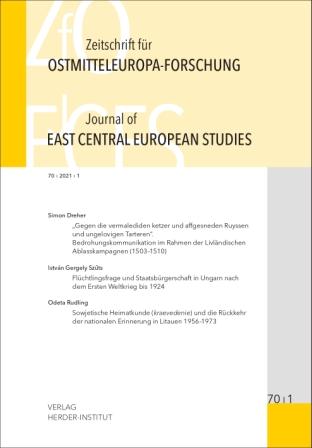Flüchtlingsfrage und Staatsbürgerschaft in Ungarn nach dem Ersten Weltkrieg bis 1924
The Refugee Problem and Citizenship in Hungary from the End of the First World War until 1924
Author(s): István Gergely SzűtsSubject(s): Pre-WW I & WW I (1900 -1919), Interwar Period (1920 - 1939), Migration Studies, Asylum, Refugees, Migration as Policy-fields
Published by: Verlag Herder-Institut
Keywords: refugees; opting; nationality; municipal residence; Hungary; Treaty of Trianon;
Summary/Abstract: According to official records, after the First World War, 350,000 people either fled or moved to the territory of Hungary from the successor states. The actual number up to 1924 was probably around 400,000, or even as high as 420,000, taking into account the domestic affairs crisis in 1919, the initial disorder around registration and numerous illegal border crossings. The refugee problem was the major social ill of interwar Hungary and it resulted in massive political and economic consequences as well. The issue of citizenship also related closely to the refugee problem. Individuals who fled or moved to Hungary from the successor states needed to apply to keep their Hungarian citizenship in compliance with the Treaty of Trianon. Non-citizens dwelling in Hungary were likewise required to proactively apply for Hungarian citizenship. This was achievable for the claimants based on their municipal residences, however the acknowledgement and substantiation of inhabitancy was profoundly troublesome. The sparsely extant yet highly informative archival accounts that contain the personal data of optants—who were willing to keep or acquire Hungarian citizenship—are noteworthy sources of information on the Hungarian refugee problem between 1918 and 1924.
Journal: Zeitschrift für Ostmitteleuropa-Forschung
- Issue Year: 70/2021
- Issue No: 1
- Page Range: 31-54
- Page Count: 21
- Language: German

